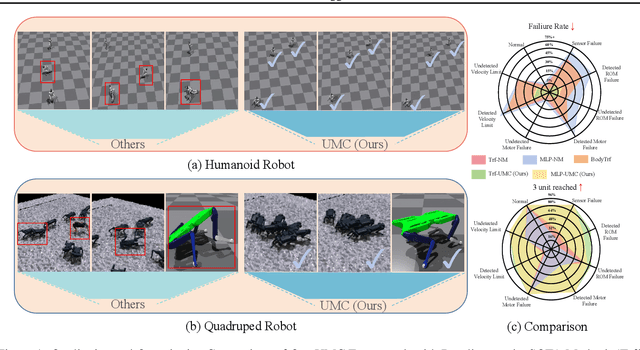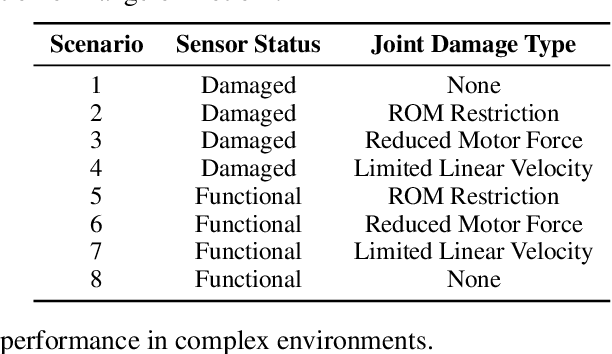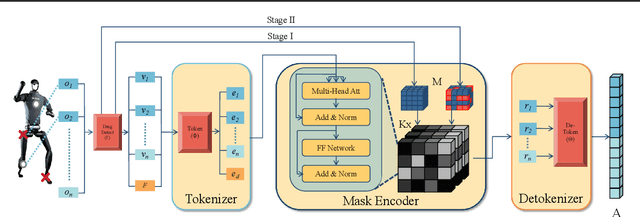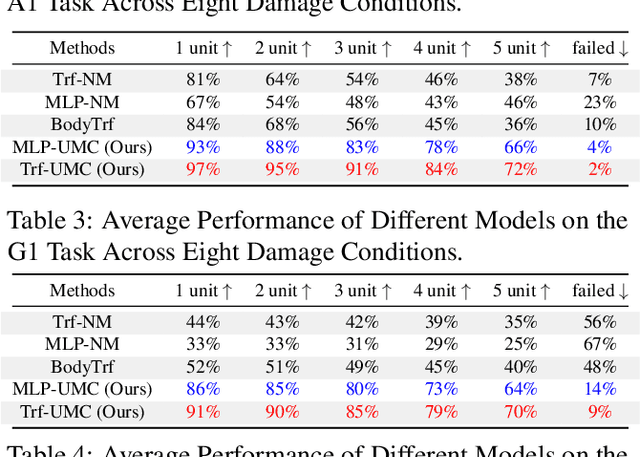UMC: Unified Resilient Controller for Legged Robots with Joint Malfunctions
Paper and Code
Feb 05, 2025



Adaptation to unpredictable damages is crucial for autonomous legged robots, yet existing methods based on multi-policy or meta-learning frameworks face challenges like limited generalization and complex maintenance. To address this issue, we first analyze and summarize eight types of damage scenarios, including sensor failures and joint malfunctions. Then, we propose a novel, model-free, two-stage training framework, Unified Malfunction Controller (UMC), incorporating a masking mechanism to enhance damage resilience. Specifically, the model is initially trained with normal environments to ensure robust performance under standard conditions. In the second stage, we use masks to prevent the legged robot from relying on malfunctioning limbs, enabling adaptive gait and movement adjustments upon malfunction. Experimental results demonstrate that our approach improves the task completion capability by an average of 36% for the transformer and 39% for the MLP across three locomotion tasks. The source code and trained models will be made available to the public.
 Add to Chrome
Add to Chrome Add to Firefox
Add to Firefox Add to Edge
Add to Edge